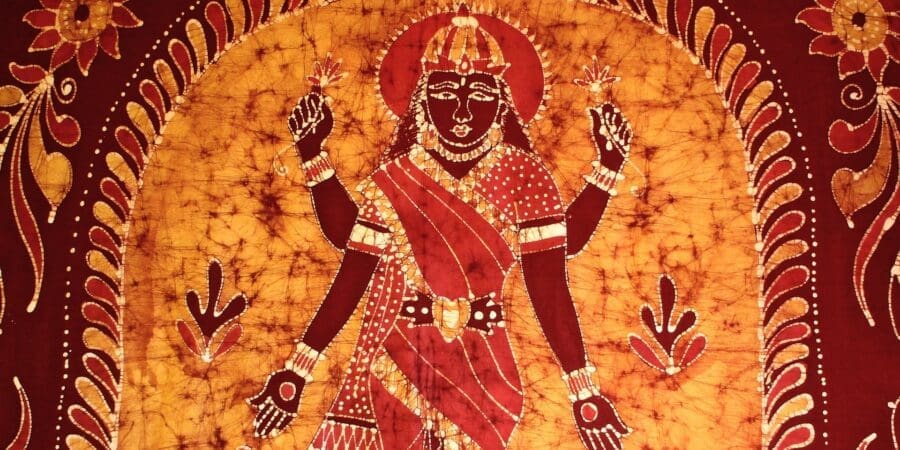Are you interested in exploring the rich cultural and spiritual heritage of Eastern spirituality? The Vedas are a significant aspect of Eastern spirituality that has influenced many cultures and traditions. The Vedas are a collection of ancient Hindu texts that are considered to be the oldest scriptures in the world. They provide a wealth of knowledge and insights into the spiritual and philosophical practices of the ancient Indians.
In this article, we will delve deeper into the Vedas, their significance, and how they have influenced Eastern spirituality over the centuries. These scriptures can definitely help you on how to practice mindful living.
Introduction to the Vedas
The Vedas are a collection of ancient Hindu texts that were composed in India between 1500 and 1000 BCE. They are considered to be the oldest scriptures in the world and are revered as sacred by Hindus worldwide. The word ‘Veda’ means knowledge in Sanskrit, and the Vedas are a compilation of spiritual and philosophical teachings that are still relevant today.
The Vedas are divided into four primary texts: Rigveda, Yajurveda, Samaveda, and Atharvaveda. These texts contain hymns, prayers, rituals, and chants that were performed by ancient Indian priests. Each Veda has its own unique style and purpose, but all of them share a common goal, which is to provide you with knowledge and insights into the mysteries of the universe.
Rigveda
The Rigveda is the oldest and most important of the four Vedas. It is a collection of hymns, prayers, and rituals that were performed by the ancient Indian priests known as the Rigvedic poets. The Rigveda contains over 1,000 hymns and is divided into ten books, each of which is dedicated to a different deity or aspect of nature.
Yajurveda
The Yajurveda is a collection of sacrificial formulas and prayers that were recited by the priests during religious rituals. It is divided into two main sections: the Krishna Yajurveda and the Shukla Yajurveda. The Krishna Yajurveda contains prose and verse, while the Shukla Yajurveda contains only verse.
Samaveda
The Samaveda is a collection of hymns and chants that were sung during religious rituals. It is divided into two main sections: the Purvarchika and the Uttararchika. The Purvarchika contains hymns that are sung during the first part of a ritual, while the Uttararchika contains hymns that are sung during the latter part of the ritual.
Artharvaveda
The Atharvaveda is a collection of hymns, spells, and charms that were used for practical purposes, such as healing, protection, and prosperity. It is the newest of the four Vedas and contains hymns that were composed during the later Vedic period.
Significance of the Vedas in Eastern Spirituality
The Vedas have played a significant role in shaping Eastern spirituality over the centuries. They provide a comprehensive understanding of the universe, its creation, and the role of human beings in it. The Vedas teach you that everything in the universe is interconnected, and every action has a consequence.
The Vedas also emphasize the importance of self-realization and the quest for knowledge. They encourage individuals to seek knowledge and wisdom through meditation, contemplation, and self-reflection. The Vedas teach us that the ultimate goal of life is to attain enlightenment and liberation from the cycle of birth and death.
The Teachings of the Vedas
The Vedas contain a vast array of teachings on various aspects of life, including philosophy, spirituality, morality, and ethics. Here are some of the key teachings of the Vedas:
Karma and Reincarnation
The Vedas teach us that every action we take has a consequence, and the consequences of our actions will determine our future. This is known as the law of karma. The Vedas also teach us that the soul is immortal and will be reborn after death. Also known as reincarnation, as there is a belief that we have had multiple past lives before.
Dharma
Dharma is a central concept in Hinduism and refers to an individual’s duty or responsibility. It is based on the idea that each person has a unique purpose or role in life, and that fulfilling this purpose is essential for achieving spiritual growth and liberation.
Dharma is a complex and multifaceted concept, and its meaning can vary depending on the context. At its core, however, dharma is about living in accordance with one’s true nature and fulfilling one’s responsibilities towards oneself, others, and the world.
Different forms of Dharma
In Hinduism, dharma is divided into four main categories: personal, social, occupational, and universal. Personal dharma refers to an individual’s duty towards oneself, such as maintaining good health and practicing self-care. Social dharma refers to an individual’s duty towards others, such as being kind and compassionate to others and fulfilling one’s responsibilities towards family and society.
Occupational Dharma
Occupational dharma refers to an individual’s duty towards their profession or occupation. It includes the ethical and moral standards that one should adhere to while working and the responsibilities that come with one’s profession. Universal dharma refers to an individual’s duty towards the world and the environment, such as being responsible and mindful of one’s impact on the world.
In modern times, the concept of dharma has become popular worldwide and has been adopted by people of all faiths and backgrounds. It has inspired many to live a life of purpose and meaning and to be mindful of their responsibilities towards themselves, others, and the world.
Yoga
The Vedas teach us that yoga is a powerful tool for spiritual growth and self-realization. Yoga is a combination of physical postures, breathing exercises, and meditation that help individuals achieve a state of inner peace and harmony.
Self-realization
The concept of karma and reincarnation is closely linked to the idea of self-realization and spiritual growth. The Vedas teach us that the ultimate goal of life is to attain enlightenment and liberation from the cycle of birth and death. This can be achieved through the pursuit of knowledge, meditation, and self-reflection.
The Vedas and Modern Society
The teachings of the Vedas are still relevant today and have influenced modern society in many ways. The principles of karma, dharma, and yoga have become popular worldwide, and many people have adopted them as a way of life.
The Vedas have also had a significant impact on the arts, literature, and music of India. Many classical Indian dance forms, such as Bharatanatyam and Kathak, have their roots in the Vedas. The Vedas have also inspired many poets, writers, and musicians over the centuries.
Conclusion Vedas in Eastern Spirituality
The Vedas are a rich and fascinating aspect of Eastern spirituality that provides a deep understanding of the universe and the human experience. Their teachings on karma, dharma, and yoga have influenced millions of people worldwide and are still relevant today. By studying the Vedas, you can gain a greater appreciation for the rich cultural heritage of India and the wisdom that has been passed down through the ages. If you feel like you struggle reading the scriptures, you can go to an expert that can easily help you go through them.
FAQ
How are the Vedas relevant in modern times?
The Vedas are still relevant today, as they provide a deep understanding of the nature of the universe and the human psyche. Their teachings on karma, dharma, and yoga are timeless and applicable to all aspects of life.
What is the significance of the four Vedas?
Each of the four Vedas has its own unique style and purpose, but all of them share a common goal – to provide knowledge and insights into the mysteries of the universe. They are all important in their own right and are still studied and revered by scholars and spiritual seekers worldwide.How can one learn more about the Vedas?
There are many resources available for those who want to learn more about the Vedas. One can study the texts themselves, attend lectures or classes on the Vedas, or read books and articles written by scholars and experts in the field.What is the role of the Vedas in Hinduism?
The Vedas are considered to be the most sacred texts in Hinduism and form the foundation of its philosophy and spirituality. They are often used in religious rituals and ceremonies and are seen as the ultimate authority on spiritual matters.How have the Vedas influenced other cultures and religions?
The teachings of the Vedas have influenced many cultures and religions over the centuries. They have inspired the development of Buddhism, Jainism, and Sikhism, and have also had an impact on the philosophies of ancient Greece and Rome.


